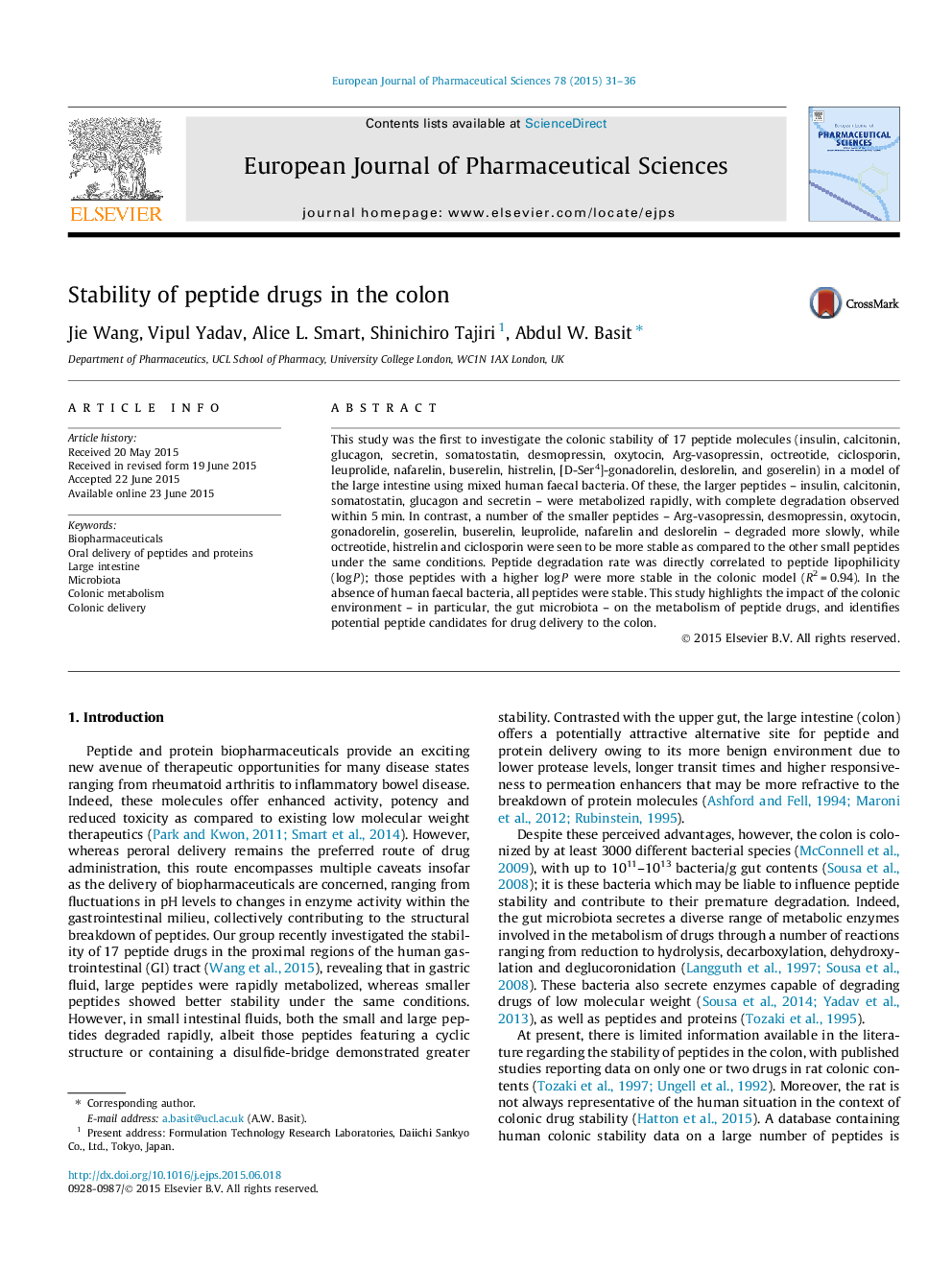| Article ID | Journal | Published Year | Pages | File Type |
|---|---|---|---|---|
| 2480190 | European Journal of Pharmaceutical Sciences | 2015 | 6 Pages |
This study was the first to investigate the colonic stability of 17 peptide molecules (insulin, calcitonin, glucagon, secretin, somatostatin, desmopressin, oxytocin, Arg-vasopressin, octreotide, ciclosporin, leuprolide, nafarelin, buserelin, histrelin, [D-Ser4]-gonadorelin, deslorelin, and goserelin) in a model of the large intestine using mixed human faecal bacteria. Of these, the larger peptides – insulin, calcitonin, somatostatin, glucagon and secretin – were metabolized rapidly, with complete degradation observed within 5 min. In contrast, a number of the smaller peptides – Arg-vasopressin, desmopressin, oxytocin, gonadorelin, goserelin, buserelin, leuprolide, nafarelin and deslorelin – degraded more slowly, while octreotide, histrelin and ciclosporin were seen to be more stable as compared to the other small peptides under the same conditions. Peptide degradation rate was directly correlated to peptide lipophilicity (log P); those peptides with a higher log P were more stable in the colonic model (R2 = 0.94). In the absence of human faecal bacteria, all peptides were stable. This study highlights the impact of the colonic environment – in particular, the gut microbiota – on the metabolism of peptide drugs, and identifies potential peptide candidates for drug delivery to the colon.
Graphical abstractFigure optionsDownload full-size imageDownload high-quality image (73 K)Download as PowerPoint slide
